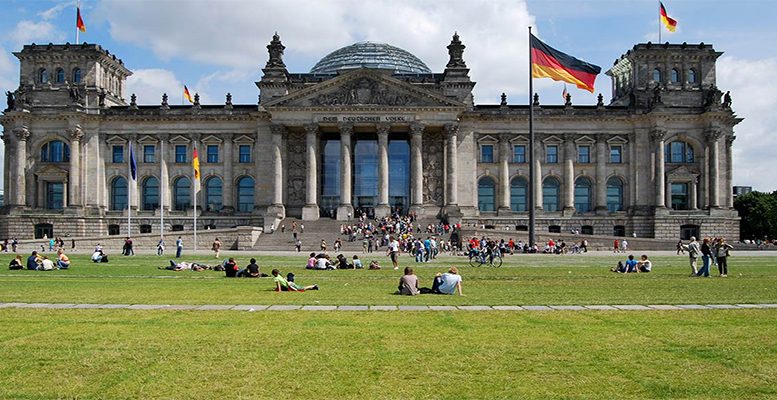Germany global leadership for the US since the Second World War has been based on Hard Power (military) and Soft Power (cultural). Economic power is not sufficient. Germany doesn’t have either one. There was a time when it was considered to be a bumper against a possible Soviet invasion, but with the end of the cold war it began to reduce its military budget which now doesn’t even reach the 2% of GDP required by NATO.
As far as cultural leadership goes, you only have to see what the rest of Europe thinks, especially the Mediterranean countries. We can compare it with the American cultural invasion, particularly in the areas of cinematography and music, since between the war years in the last century, and which still continues.
Obviously I don’t mean that cinema and music make a country a leader, but isn’t it a symptom that we don’t know anthing about the anemic German cinema? What is clear is that these type of invasions, whether we want them or not, cannot be stopped by bureaucracy. The French have a certain cultural leadership, which has spread to many areas in the US, but it’s something that the Germans don’t feel the need to imitate.
Furthermore, Germany is carrying the burden of being responsible for having imposed a counter-productive monetary and fiscal policy against the crisis, and this stigma could last for over ten years.
“Into the bargain”, as the French say, the latest elections have opened up an enormous gap right in the centre of the political spectrum, with the defection of the liberals from a coalition government as well. This is because they don’t accept an increase in the budget of an essential European mechanism, the ESM, which has to be boosted peremptorily to alleviate the effect of the next financial crisis. This slamming of the door on the expected government of Merkel with the liberals has slammed the door on Europe.
Merkel’s leadership, the only one with a European vision, is not working, and if she doesn’t step down and hand over to someone else it’s possible there will be new elections, with an even worse result for her. In short, she is the centre, more or less the centre of Europe, and the barbarians from the extreme right are hovering on the horizon. And they can be easily defined, saying that they refuse to expel the admirers of Hitler from the party.
As a result, apart from not meeting the essential conditions for leadership which Enrico flags for us, within a short time the concept of Europe for the future German government is going to be slightly – or seriously – different.
For the time being, Macron’s dreams of reforming Europe (in order to reform France) have been dashed. What has Macron, the recently and brilliantly elected president of France, got to do with Germany’s leadership? Would Germany’s weakness not benefit him? Europe has always been shared between France and Germany. The former’s mad social policies have made the country weaker over the last few years, pushing fiscal pressure to around 60% of GDP. Macron has managed to implement a divide in the unions’ power, but the major project of having a European finance minister has disappeared. Europe has been seriously hit by the German elections.
It’s difficult for Europe not to suffer the consequences of being led by Germany. What is in doubt is whether in the next crisis, which could be fuelled by any of the underlying threats (Russia, immigrants, separatism etc) there will be sufficient common resources to deal with them.
What is childish is to believe that we can remain forever in a state of indecision.





